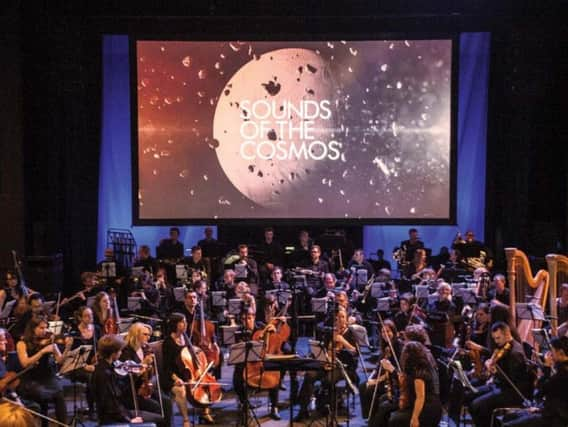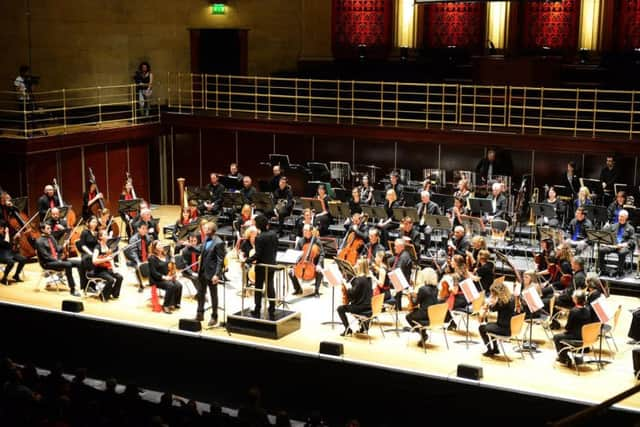Ambition for Sheffield to hit the right notes in classical music world


Classical music is thriving locally, with an 'astonishing amount going on', a report says - but players, ensembles, schools and charities need support to create 'a more sustainable industry with a wider and deeper reach across Sheffield, for residents of all ages'.
The paper is the fifth in a series commissioned by Sheffield University, and follows similar publications on the city's prowess in beer, art, digital creativity and its overall music sector. The latter recommended a closer look at classical music-making, leading to the latest report, written by Simon Seligman of Music In The Round which promotes and stages concerts, mainly at the Crucible theatre, including an annual May Festival.
Advertisement
Hide AdAdvertisement
Hide Ad

In 2016, the most recent year for which records are complete, there were 423 classical events in Sheffield in up to 30 venues, making a 'significant contribution' to the city's night-time economy. Income from ticket sales and performances amounted to just under £900,000, the sector supported more than 200 jobs from venue managers and composers to piano tuners, and organisations received over £3 million in grant support.
Sheffield harbours some 'very successful examples' of classical music provision. The 11-strong Ensemble 360 is the city's biggest group of professional players and was formed by Music In The Round, while the International Concert Season at the City Hall is built around the Hallé orchestra which is shared with Manchester.
The report points to 'one of the most impressive networks of amateur music groups of any English city outside London, especially one that does not have the headline asset of a fully-resident professional orchestra'.
"Music education is as strong in Sheffield as anywhere in the country and more of the city's young people are being given access to live music and the opportunity to express themselves through music," Seligman adds.
Advertisement
Hide AdAdvertisement
Hide Ad

However, the report sets out a series of proposals as to how the sector could be supported 'economically, politically and culturally', the biggest being a new centre for live, acoustic music.
"Amateur and professional musicians and organisations alike share the ambition that Sheffield will one day have the political, social and financial will to create a purpose-built, or adapted, music centre for the city that offers a flexible mid-scale performance space of between 450 and 600 seats with a world-class acoustic for non-amplified live music. This would complement the larger spaces at the Crucible and Lyceum, City Hall and the Arena."
The Stoller Hall at Chetham's school in Manchester is cited as a potential template for a mid-scale space that would boost Sheffield's image and keep audiences from travelling elsewhere to find a greater 'range and frequency of performances by national and international musicians'. A feasibility study should be carried out, the report says.
Meanwhile, it is argued that Sheffield could become the principal location for large-scale orchestral and session recording outside London. There has been a rise in the number of instrumentalists and music business professionals who have moved to the North from the capital, says Seligman, who adds: "This trend will only increase, making Sheffield an even more viable place for more recording work."
Advertisement
Hide AdAdvertisement
Hide AdA substantial space would be needed - Studio 1 at Abbey Road in London, which can accommodate a full symphony ensemble, is 28m long by 16m wide, and 12m high. "We recommend exploratory discussions to identify existing spaces with the potential for adaptation."
In addition, a resident orchestra would 'address a long-standing gap', becoming a symbol of civic pride. "Sheffield and the area from South Yorkshire down to Nottingham is believed to be the largest city or region in Europe, by size and population, without a professional orchestra."
But the enterprise would hinge on the development of a new venue.
"With a fine acoustic space Sheffield could explore the possibility of identifying and inviting an existing orchestra to be based in the city. Without a space of this quality, the chances of establishing or inviting an orchestra on any scale to be based here are minimal."
Advertisement
Hide AdAdvertisement
Hide AdFurther investment in festivals, a regional 'classical network', targeted funding for music in schools and a better understanding of local audiences are also required, the report says.
"We recommend that all the professional stakeholders in the classical music sector, whether resident or visiting, including the Hallé, sit down to share their visions for their future in the city and agree how these can best be harnessed to strengthen the longer-term economic and civic resilience of the sector."
In numbers: A year in classical music in Sheffield
423 public classical events listed on the Classical Sheffield website; 261 were professional and 162 amateur
146,250 tickets sold with £626,740 generated
109 full-time jobs and 107 part-time roles
581 freelancers were identified as giving 37,714 hours, earning around £200 a day which amounts to nearly £1 million in wages and fees
£3 million - amount of grant support earned by classical organisations in Sheffield
(Figures from 2016)